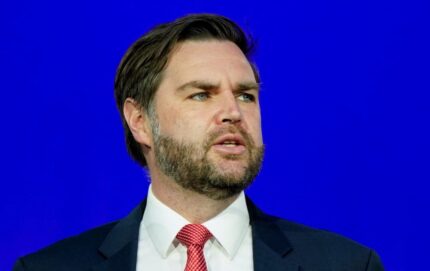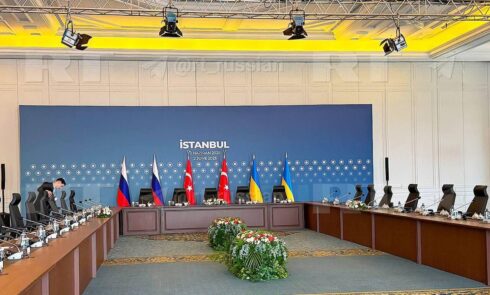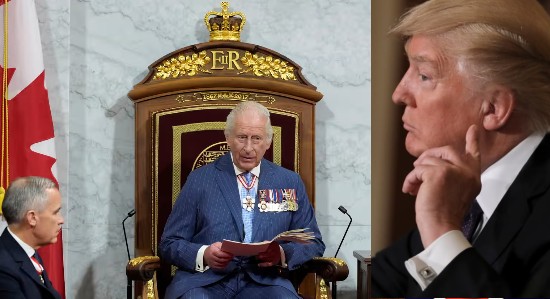United States Vice-President JD Vance has expressed confidence in the prospect of a trade agreement between the US and the United Kingdom, describing the likelihood as a “good chance” amid ongoing diplomatic and economic turbulence. Speaking to UnHerd in a wide-ranging interview on Monday, Vance said the US government is “working very hard” with Prime Minister Keir Starmer’s administration to strengthen bilateral trade ties.
This statement comes as both countries navigate the fallout from President Donald Trump’s radical new tariff policy, which imposed sweeping 10% tariffs on imports from several key allies, including the UK and France. The Trump administration has defended the move as a long-term strategy to reduce trade deficits and restore what it describes as “balanced reciprocity” in global commerce.
UK government sources have confirmed that trade negotiations with Washington are progressing well. Talks reportedly go beyond simply removing tariffs and include deeper cooperation on trade in services, digital standards, and regulatory alignment. Vance signaled that compared to EU states, particularly Germany, the UK offers a “much more reciprocal relationship” that could help fast-track a bilateral agreement.
Global Markets Rattled by Tariff Shockwaves
The announcement of President Trump’s “Liberation Day” tariffs on April 2 sent shockwaves through the global financial system. Trillions of dollars were wiped off the US stock market in a matter of days, triggering concern among investors and economists worldwide. The immediate economic instability drew criticism from some sectors but was downplayed by the White House as part of a calculated transition to a fairer trade framework.
Markets showed signs of recovery on Monday, following reports of limited exemptions and ongoing diplomatic engagement with key partners. However, volatility remains a pressing concern. Vice-President Vance acknowledged the impact of uncertainty, saying, “Any implementation of a new system is going to make financial markets jittery.”
Despite the backlash, Vance reiterated that the administration views the tariff strategy as “a long-term play.” He emphasized the goal of reducing America’s trade deficits “across the board,” suggesting that temporary instability is a necessary cost in rebalancing global trade dynamics.
Vance Clarifies Position on Europe and Defense
Addressing recent tensions in transatlantic relations, Vice-President Vance sought to soften perceptions of hostility towards Europe. Leaked remarks from a private chat had stirred controversy, painting Vance and other top US officials as dismissive of European allies. In response, he told UnHerd, “I love European people… you can’t separate American culture from European culture.”
However, Vance didn’t shy away from pressing long-standing American concerns regarding Europe’s security posture. He argued that the continent needs to take greater responsibility for its defense, insisting that continued reliance on the US is unsustainable. “It’s not in Europe’s interest, and it’s not in America’s interest, for Europe to be a permanent security vassal of the United States,” he said.
His comments reflect broader sentiment within the Trump administration, which has consistently pressured NATO allies to increase their defense spending and military readiness. Vance’s remarks suggest that future US-European partnerships may hinge not only on trade but also on more equitable defense commitments.
War in Ukraine and US-Russia Dynamics
In a delicate balancing act, Vance also addressed ongoing criticism of the US administration’s approach to the war in Ukraine. Amid concerns that the Trump White House may be growing too lenient toward Russian President Vladimir Putin, Vance clarified that understanding Russia’s perspective does not equate to endorsement.
“To end the war, you have to try to understand both sides,” Vance said. “That doesn’t mean you morally support the Russian cause… but you do have to understand their strategic red lines.” He stressed that this pragmatic approach is aimed at ending the war, not legitimizing the invasion.
His comments came a day after Russia launched its deadliest attack on Ukraine this year, killing at least 35 people. In response, Ukrainian President Volodymyr Zelensky extended a personal invitation to Donald Trump to visit Ukraine before any peace negotiations involving Russia take place, hoping to underscore the humanitarian and geopolitical stakes involved.
Strategic Outlook: Trade, Defense, and Diplomacy in Transition
As the global order continues to shift, the US-UK trade deal could emerge as a symbolic and substantive pillar of a new Western economic architecture. While President Trump’s trade strategy has introduced volatility, it has also catalyzed realignments that may eventually reshape global commerce.
Vice-President Vance’s tone suggested that the UK is viewed as a critical and willing partner in that transition. With Keir Starmer’s government signaling readiness for deeper engagement, the potential for a trade deal represents one of the more stabilizing prospects in an otherwise tumultuous period.
Whether the optimism translates into policy success remains to be seen. But as the dust begins to settle, the convergence of trade, diplomacy, and defense commitments will define how the US and its allies navigate the road ahead.














